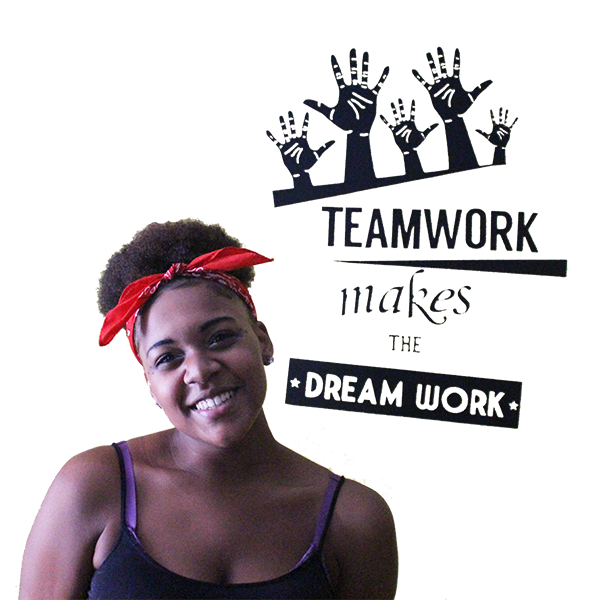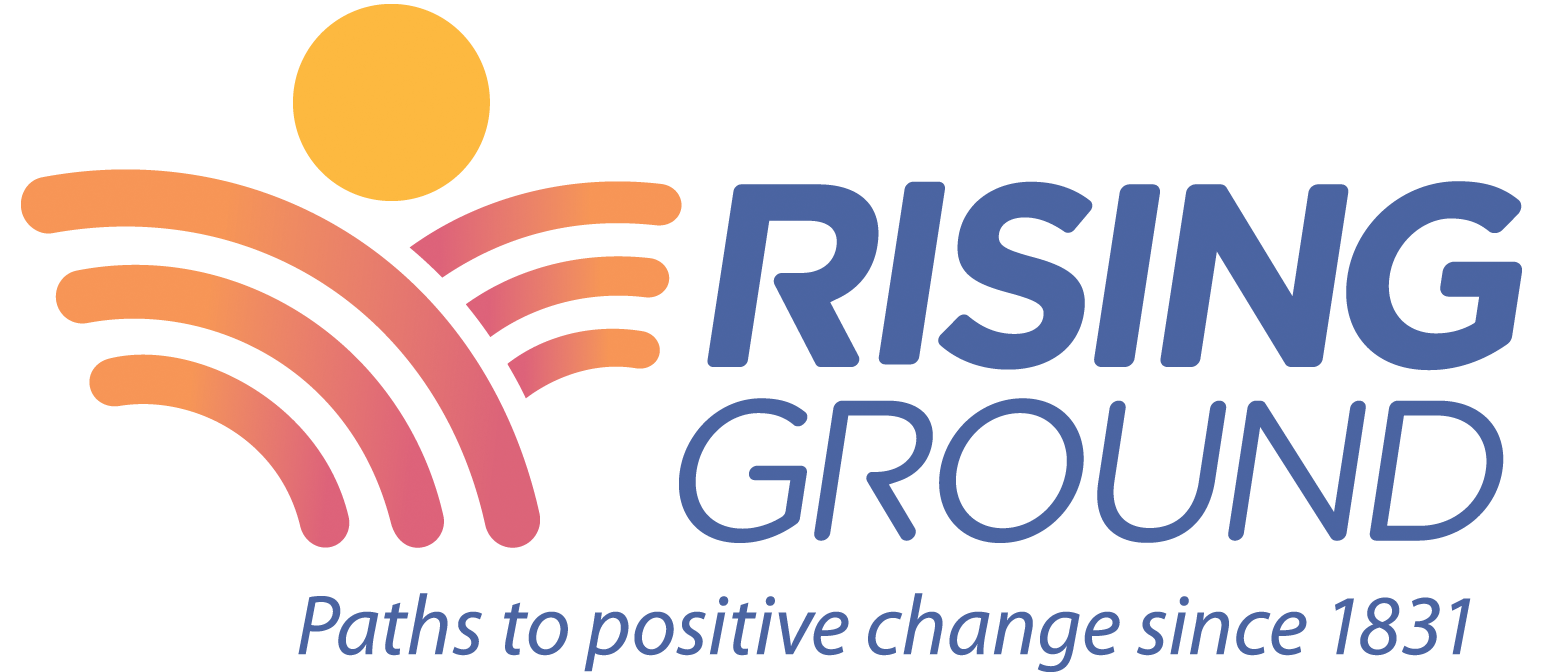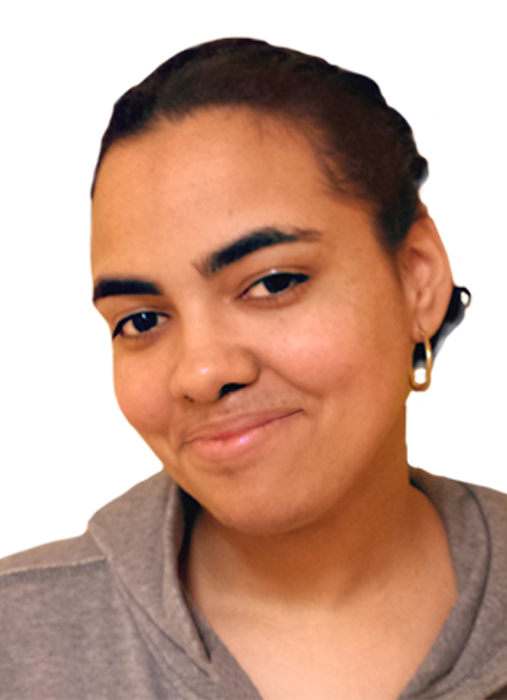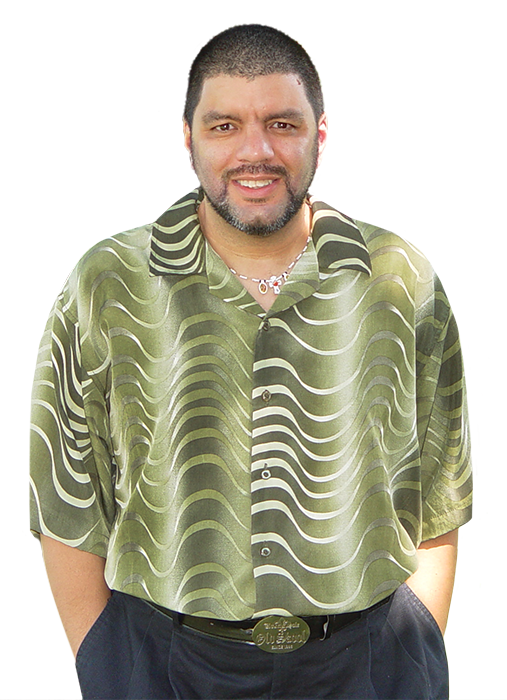Archives
Early RAPP
Teen relationship abuse is a pervasive issue among our country’s youth, indiscriminate of socioeconomic status, location, race, ethnicity, religion, gender identity, and sexual orientation. Across the nation, one in three teenagers (approximately 1.5 million high school students per year) experience abuse from a dating partner or friend. Alarmingly, only one in three of these teens actually tell someone about the abuse they’re experiencing. The impacts of teen relationship abuse can affect individuals and communities long after the abuse stops.
The Early Relationship Abuse Prevention Program (Early RAPP) at STEPS to End Family Violence is committed to reducing these numbers and empowering the youth of New York City to lead lives free from relationship abuse.
Mission
Early RAPP strives to stop Teen Relationship Abuse before it starts, by supporting New York City youth in having healthier relationships.
Vision
Early RAPP envisions a cultural shift towards consent, safety, and respect, and a NYC devoid of the trauma of Teen Relationship Abuse.
Values
Whether in the classroom or the community at large, we value compassion, authenticity, and wellness in everything that we do.
How does Early RAPP work?
The Early Relationship Abuse Prevention Program at STEPS provides free and interactive prevention education to 64 DOE Public Middle Schools serving 6th-8th grade around New York City. At Early RAPP, we value evidence-based, trauma-informed, and compassionate prevention education for youth as they begin to explore different types of relationships.
Using a healthy relationship training model, Community Educators facilitate workshops for students, parents, school staff, and community members. We also offer workshops to community-based organizations and service providers around New York City. In addition to this work, we connect students and families to critical support services and counseling.
The Early RAPP team at STEPS consists of eight Community Educators, each of whom serves eight schools, which are geographically clustered to maximize time in every school. We have schools in Manhattan, Brooklyn, Queens, and The Bronx. This model allows our Community Educators to get to know each school community, and provide individualized services based on a given school’s needs and priorities.
What kinds of workshops are offered?
Throughout our core workshops, we facilitate critical conversations with both youth and adults about:
- Teen Relationship Abuse
- Consent and Boundaries
- Sexual Harassment vs. Flirting
- Healthy Relationships
We also offer supplemental workshops following the four-part core series including:
- Gender Roles
- Gender Identity & Sexuality
- Homophobia & Transphobia
- Power & Privilege
- Puberty and All About The Body
- Self Care
- Bullying Prevention
- Tech Abuse & Digital Safety
- & more!
Become an Early RAPP school
Early RAPP is currently looking to bring on several public middle schools (non-charter) in Queens, and two in Upper Manhattan and The Bronx. If you are interested in learning more about Early RAPP or bringing our program to your school, reach out to the Early RAPP Supervisor, Danielle Naghi, LMSW at DNaghi@risingground.org
Early RAPP is a program of STEPS to End Family Violence, a holistic program of services for victims of gender-based violence with a focus on prevention, intervention, and policy advocacy.
STEPS to End Family Violence
Healthy and meaningful relationships are key to our well-being. The ability to connect with others, share experiences, and feel a sense of belonging provides stability to our lives. However, within relationships – when one partner is abusive and controlling to another – a relationship that should be a site of love and support can become enormously harmful. When people, predominantly women and their children, are in an environment defined by abuse, fear – for their lives, of losing everything, of shame from their community – can lead to desperate actions. Beyond physical threats, the trauma of abuse impacts the emotional and mental well-being of survivors and their children.
Our STEPS To End Family Violence cadre of programs is committed to both healing and prevention. We work with survivors and their families to overcome histories of abuse to find positive paths forward. Meanwhile, we work with youth, schools, courts, legislators, and the community at large to advocate for a greater understanding of healthy relationships and how intimate partner violence can lead to any number of subsequent challenges. We are explicitly committed to naming the survivorship of people whose experiences have historically been ignored.
STEPS was founded by the legendary Sister Mary Nerney in 1986 after she convened a gathering of women incarcerated at the Bedford Hills Women’s Correctional Facility who testified to their histories of battering and its relationship to their criminal charges. This historic event created a call to action to create what started as a two-person court advocacy project. In the decades since, STEPS has evolved into a holistic program of services for survivors of intimate partner and other forms of gender-based violence with wide-reaching focuses on healing, prevention, intervention, and policy advocacy.
Community Based Services
For survivors, the consequences of being partnered with someone who is abusive last well past when a survivor is able to gain independence from that abusive partner. Survivors experience not only emotional and personal hardship but a host of logistical challenges that can disrupt the healing process and hinder survivors’ efforts to get their lives back on track. We offer a wide range of clinical supports to help survivors overcome their past trauma and find paths toward healthy, independent lives.
Healing is the most vital step for someone who has survived intimate partner violence. We provide individual and group therapy that help survivors and their children move beyond their histories of abuse to see hope for the future. Recognizing the strain that intimate partner violence can have on families and on survivors’ ability to parent, we employ a number of evidence-based models to help parents and children bond, endure, move forward, and form strong, resilient families. In addition to Trauma-Focused Cognitive Behavioral Therapy, we are strongly committed to the Child-Parent Psychotherapy model to heal and strengthen attachment between survivors and very young children. We also offer highly effective, evidence-based parenting support through our facilitation of Parenting Journey and Parenting in America, through which parents explore how their past experiences impact their parenting and re-envision how to lead their families.
Beyond therapeutic supports, we offer expansive case management and advocacy to meet the complex needs of survivors and their families. As families engage in the healing process, we help alleviate additional concerns by providing assistance and guidance in housing, public assistance, education, and more. Recognizing the particular vulnerability of survivors and their families to economic insecurity, as well as the financial barriers to gaining independence from an abusive partner, our Economic Empowerment Program provides financial counseling and advocacy for survivors.
Criminalized Survivors Program
Continuing the tradition that first led to STEPS’ founding, we remain highly committed to raising awareness of the direct link between intimate partner violence and criminalization by providing direct support to survivors who have been arrested for their efforts to survive and/or resist their abusive partner’s behavior. This includes support for survivors who have been arrested for violence against their abusive partner as well as those who have been coerced into illegal activity by an abusive partner. Beyond our therapeutic supports and case management offered to all survivors, we provide legal advocacy and court accompaniment to survivors who are detained at Rikers Island, as well as those in the community facing court involvement. We work directly with defense teams to develop trauma narratives that demonstrate how intimate partner violence brought survivors to the place that preceded their arrest.
We also work to raise awareness of the role intimate partner violence often plays criminalization by partnering with New York City courts, legal professionals, and peer organizations. We provide expert-led trainings to various actors in the legal system to help them identify and support criminalized survivors.
Teen Services
As we work to guide those who have experienced intimate partner violence, we are simultaneously committed to preventing future instances through advocacy and education. An astonishing one in three adolescents experiences physical, sexual, emotional, or verbal abuse from a dating partner in the United States. We work with teens and in schools to help young people understand signs of abuse, what to do when they arise, and how to pursue healthy relationships.
Our Relationship Abuse Prevention Program (RAPP) is the nation’s largest teen dating violence prevention program. At 17 middle and high school campuses across New York City, our social workers provide individual counseling, group work, in-class education, and training through the school community on healthy relationships. We work with young people to help them understand healthy relationships and consent. Our Early RAPP brings community educators to provide special programming in middle schools across the city.
JustUs is a gender-responsive diversion program for girls and LGBTQ+ young people who are either involved, or at high risk of involvement, in the juvenile legal system.
Homeless & Runaway Youth Services
In the New York City area, homelessness has reached its highest levels since the Great Depression in recent years, with more than 60,000 individuals and families living without a permanent residence, including more than 20,000 children. Among those alarming statistics are a number, constantly in flux, of teenagers who have run away from or been kicked out of their homes and now find themselves living in unstable situations.
Each of these youth brings a different story. At home, they may have faced abuse, neglect, conflict, substance abuse, sexual abuse, foster care placement, or lack of acceptance for their sexual orientation or gender identification. Once they’ve left the home, youth enter a life of constant instability. Many live in shelters, cars, parks, vacant buildings, or on the streets. Some “couch surf” with friends as long as the generosity of their network will allow.
A New Beginning
But that doesn’t have to be case. Our Transitional Independent Living (TIL) programs provide runaway and homeless youth, ages 16-21, with the home they need and deserve. Combining educational, therapeutic, and recreational supports in a supportive residence, we provide youth the stability and guidance so they can look toward to the future.
Once at our TIL, youth find a supportive and nurturing environment between peers and staff where we work with them to achieve stability. Each youth has her own room as well as space for recreation and relaxation. Our Case planners work with each youth to understand the root of their circumstances and identify their needs, as well as their goals for the future.
We set in place comprehensive supports and provide resources to ensure youth can achieve improved well-being, greater educational success, and strengthened relationships, including reconnecting with family when appropriate. We help youth acquire life skills needed for independent living; career skills that will sustain independent and productive lives; and education that will support career goals. With staff on hand 24 hours a day, our program establishes schedules and routines that teach responsibility and encourage good habits – all with the ultimate goal of achieving self-sufficiency.

HOMELESS & RUNAWAY YOUTH SERVICES
It doesn’t feel like a shelter
“It doesn’t feel like a shelter. You feel the love when you walk through the door.”
TAMIA

Community Schools
Student Success Begins with All-Around Support
Many factors shape a young person’s likelihood of succeeding in school. If you are worried about your next meal, how can you focus on your math test? If you lost sleep last night because there was a commotion in the hall of the homeless shelter where you live, it’s hard to concentrate on chemistry. These are the realities of all too many students in New York City.
Schools today must be more than just a place to learn math and reading. When students are affected by homelessness, hunger, domestic violence, and other challenges that impact their ability to learn, their families and they need comprehensive support from partners they trust. That is where the community school model enters. With a holistic approach, we partner with school leadership to help students and their families with challenges that teachers and school administrators don’t have the capacity or tools to address – everything from on-site counseling to linkage with food stamps and medical services.
As part of the city-wide School Renewal Program – a comprehensive, multi‐year, whole‐school reform effort to raise the performance of the City’s lowest performing schools and enable students attending these schools to succeed – Rising Ground partners with the JHS 123 – The Bronx Urban Community School – and School of the Performing Arts in the Bronx.
Support Where You Need It
The community school model is based on the understanding that an integrated focus on academics, health and mental health services, social services, expanded after-school and summer learning opportunities, positive youth development, and family and community supports are critical to improving student achievement.
Under the guidance of our trained Social Workers and support staff, who are on site at the schools daily, all of these elements become part of the core function of the school. We also support extensive parent and community engagement. Each community school serves as a hub where these partners come together to coordinate and integrate a full range of supports based on the needs of individual students and their families. By providing social, emotional and academic enrichment supports for learning, personalization of services to students, and school-wide programming, we make students, families and communities stronger.
One Size Doesn’t Fit All
Understanding that each community, school, family and student has their own special needs, our community schools take an individualized approach on every level. Each year our Community Schools plan a Community Forum, a collaborative and inclusive event, in which parents, teachers, school leaders, and community stakeholders meet to identify the strengths and needs of the school and the community and agree on strategies to address those needs. We then work together to solve problems, measure progress, and create a welcoming, positive environment where youth and their families can enjoy learning together.
Early Learning & Childcare Services
Channeling Curiosity
Children are eager explorers, curious about every aspect of the world around them. Our Early Learning and Childcare Centers harness that curiosity to guide both learning and play. If a fire truck’s siren arouses interest, the teachers use that interest as a learning opportunity! We help children explore, create, and gain a sense of self through play as they interact with peers and expand their horizons.
Providing the Nurturing Care You Want
For parents, our Early Learning and Childcare Services are safe, nurturing places that enrich their children’s lives while providing trustworthy, affordable care. Our evidence-based educational curriculum is tailored to each child’s learning and developmental needs while encouraging growth and creativity. To make sure children are ready to learn, our sites provide breakfast, lunch and snacks.
The program is offered year-round, from 8 a.m. to 6 p.m. Classrooms at the Ames Center are bilingual.
Program Features
- New York State Certified Teachers
- Teacher assistants in every classroom
- Use of the evidence-based Creative Curriculum
- Spacious, well-equipped, modern facilities
- Indoor and outdoor play areas
- Field trips
- Nutritious breakfast, lunch and snacks
Family and Parent Support
- Opportunities for parents and families to come together with teachers and each other to learn, share, and participate in their children’s education.
- Fees are on a sliding scale, based on income. Open to all families, including those with ACS vouchers.
- Extended day service and extended calendar service for eligible working families.
Universal Pre-Kindergarten Program
Rising Ground Preschools Reopening School Plan
As we work to ensure continued education and support for the children in our Ames Early Childhood Learning Center (Yonkers), where we provide UPK services, as well as our special education preschools – Brownell School (Bronx) and Children’s Learning Center (Manhattan) through Covid, please see the full reopening plan here or download the following documents for the 2020-2021 school year: our full reopening plan and addendum, our revised 2021-2022 reopening plan, our remote learning plan, internal contact tracing protocol, and a testing notification, as well as our 2021-2022 Full Reopening Plan in English and Spanish and our Code of Conduct in English and Spanish.
Inspiring a Lifelong Love of Learning
Being 4-years-old is a magical time. So much to learn and so many ways to learn it! At this age, children are eager to explore, create and absorb ideas. Our free Universal Pre-Kindergarten Programs provide a nurturing environment in which children develop their language, cognitive, physical and social skills — learning about the world, being creative, and letting their imaginations soar.
Our programs are child-directed, building on the curiosity of the children themselves. Creative exploration and access to a rich array of learning opportunities give our children pre-literacy skills and promote self-esteem, just what they need to succeed in school and in life. Children thrive in classes with high adult-to-child ratios. Our teachers use an evidence-based curriculum, the Creative Curriculum, that is child-centered, encouraging children to explore their world.
Extended Care
Children in our free Universal Pre-Kindergarten programs have the option to participate in our extended day program, which is open from 8 a.m. to 6 p.m. (7:30 a.m. in Yonkers), in support of working parents’ schedules. The sliding scale fee for the extended day is based on family income and is open to all families, including those with ACS vouchers.
Program Features
- New York State Certified Teachers
- Teacher assistants in every classroom
- Use of the evidence-based Creative Curriculum
- Spacious, well-equipped, modern facilities
- Indoor and outdoor play areas
- Field trips
- Nutritious breakfast, lunch and snacks
Family and Parent Support
- Opportunities for parents and families to come together with teachers and each other to learn, share, and participate in their children’s education.
- Services available to children and families in English and Spanish.
- Bilingual classrooms in some locations.
Children’s Care Management
The Support Families Need
Every parent can use a little help, but having a child with serious medical or emotional / behavioral challenges requires even more assistance. Even the most resourced families can feel overwhelmed as they attempt to navigate multiple systems of care to ensure that they are finding the services that will most help their child.
Care Management Services are the helping hand for families that need it most. We help parents and caregivers manage the many challenges they face each day – from finding the right specialist for their child, to ensuring transportation for appointments, to coordinating medication management with schools, to name a few. Most importantly, we assist families with negotiating the many moving parts of multiple systems to make sure the systems work together in a comprehensive manner with shared goals tailored to each child’s needs. Through this holistic approach that includes the whole family and brings multiple service providers to the table, children with various health and mental health needs can thrive and grow.
A Comprehensive Approach to Health
Being healthy is about more than physical health. Children need a host of supports – a healthy diet, a safe home, an appropriate educational setting – to truly be healthy. Our Care Management services, make certain all those needs are met. We help qualifying Medicaid-eligible families make sure their children receive the whole range of care and services they need. Thanks to this support, children demonstrate improved health outcomes and a reduction in hospitalizations – and families experience less stress.
Each child is assigned a Care Coordinator, who makes sure families have the services they need:
- Appointments with healthcare providers (such as doctors, nurses, nutritionists, counseling, and mental health and substance abuse services)
- Access to appropriate medications
- Insurance to pay for a child’s care
- Transportation to your appointments
- Connections community providers for social services
- Help with housing services
- Support from their child’s school
- And much more
Care Coordinators continually communicate and share information with families/caregivers from providers in ways that are meaningful to them, sometimes acting as translators. Our services also ensure care during transitions from inpatient to other settings and promote ongoing medical and behavioral care to prevent crisis. Ultimately, we focus on securing the long term success for every child and his/her family.
Who Qualifies for Care Management Services?
Care Management services are available to Medicaid-eligible children in New York State with one or more qualifying conditions. All children within a family who meet these criteria are eligible, and children can qualify even if they are enrolled in other services, such as mental health, prevention, or foster care.
To qualify, a child must be eligible for Medicaid and have one single qualifying condition or two or more chronic medical conditions.
Single qualifying conditions include:
- HIV
- Serious Emotional Disturbance or Complex Trauma
(Serious Emotional Disturbance is often indicated by a child’s inability to learn or develop or maintain relationships with others, while Complex Trauma is common among youth who have been victim of or witness to abuse, neglect, violence in the home or the community, or who have been displaced from their homes or had parent figures removed from their lives)
Chronic medical conditions include:
- Diabetes
- Asthma
- Obesity and Metabolic Diseases
- Cardiovascular and Respiratory Diseases
- Attention Deficit / Hyperactivity Disorder
- Depression
- Most Mental Health, Personality, and Psychiatric Disorders and Diseases
- Eating Disorders
- Alcohol and Substance Abuse Disorder
- Recurring Health Issues
To see a complete list of qualifying conditions, visit the New York State Medicaid Health Home page here.
Rising Ground provides Care Management services as a member of the Collaborative for Children and Families Health Home, a consortium of 31 agencies throughout the New York City area.
Residential Services
Person-Centered Services
Independence and the personal goals of individuals with intellectual/developmental disabilities are the focus of our residential programs. We teach the skills you need to become as independent as possible and to achieve outcomes that are meaningful to you.
Using the Council on Quality and Leadership (CQL) Personal Outcome Measures (POMs) tool, we focus on identifying the individual strengths, dreams, and aspirations of each individual. Those strengths and aspirations provide the roadmap for each individual’s journey to independence.
The Stars That Guide Our Services
Every individual in our program develops a life plan — their Guiding Star Workbook — that reflects what is important to them, who is important to them, as well as their dreams and goals, and the accomplishments that make them proud. This workbook helps our staff get to know each person as an individual and guides the services we provide. The Guiding Star Workbooks ensure that we have the information we need to help the people we serve achieve their personal goals.
Community Residences for Individual Needs
Our Community Residences are homes for individuals with intellectual/developmental disabilities. Each resident is safe and supported as they bond with others in their home and acquire the skills that will allow them the greatest level of independence. With five or six people living in each home, it’s a close family atmosphere. Residents also have opportunities to engage with the larger community as well.
Services include 24-hour support, assistance with household chores, life-skills and transportation training, clinical support and recreational activities — all guided by the individual’s strengths and the aspirations as expressed in their Guiding Star workbook.
Our residences are licensed by the Office for People With Developmental Disabilities (OPWDD).

Supportive Employment
Lorem ipsum dolor sit amet, ius tritani vocibus et, prima admodum ad nam. Et nec viris officiis. In virtute democritum definitionem mea, his ut dolor perfecto, ex hinc aeterno vel. Vim laudem aperiam an, quaeque antiopam similique te usu.
Consul suavitate imperdiet eos ad, ius ei quod prima fugit. Eos debet graeci causae cu, et justo facer suscipiantur qui. Ea tantas eripuit iudicabit his, nulla voluptua persequeris an eum. Illum error alterum cu vel, tincidunt definiebas est ne. Ex tation quaestio sit, id usu ferri minimum dignissim.


